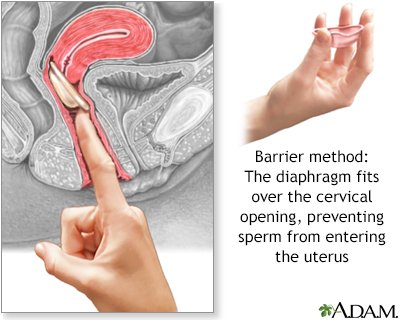
Best Understanding UTIs from Sex: Causes, Prevention, and Treatment from 2018
Understanding UTIs from Sex: Causes, Prevention, and Treatment
Urinary tract infections (UTIs) are a common health issue that can cause significant discomfort and disruption in daily life. While UTIs can arise from various factors, sexual activity is one of the most common triggers, particularly in women. Understanding the connection between utis from sex, the reasons behind it, and how to prevent and treat these infections is crucial for maintaining both sexual and urinary health. This article delves into the causes of UTIs from sex, effective preventive measures, and the available treatments to help manage and reduce the risk of these infections.
What Are utis from sex?
A urinary tract infection (UTI) is an infection that occurs in any part of the urinary system, including the kidneys, ureters, bladder, and urethra. Most UTIs involve the lower urinary tract, which comprises the bladder and urethra. UTIs are typically caused by bacteria, with Escherichia coli (E. coli) being the most common culprit. These bacteria are normally found in the gut but can cause infection when they enter the urinary tract.
The Connection Between Sex and UTIs
Sexual activity is a well-known risk factor for developing UTIs, especially in women. The anatomical structure of the female body plays a significant role in this susceptibility. Women have a shorter urethra than men, which means bacteria have a shorter distance to travel to reach the bladder. During sexual intercourse, bacteria from the genital area and anus can be pushed into the urethra, leading to a UTI.
1. Introduction of Bacteria
During sex, the movement and contact can introduce bacteria from the genital area or anus into the urethra. This can happen through direct contact or via hands, fingers, or other objects involved in sexual activity. Once bacteria enter the urethra, they can quickly multiply and travel to the bladder, leading to an infection.
2. Hormonal Changes
Hormonal changes, especially those related to the menstrual cycle, pregnancy, or menopause, can alter the vaginal flora (the bacteria naturally present in the vagina). These changes can make it easier for harmful bacteria to grow and increase the risk of a UTI after sex.
3. Use of Spermicides and Diaphragms
Certain contraceptives, such as spermicides and diaphragms, can also increase the likelihood of developing a UTI. Spermicides can disrupt the natural balance of bacteria in the vagina, allowing harmful bacteria to thrive. Diaphragms, on the other hand, can press against the urethra, making it more difficult to fully empty the bladder and allowing bacteria to grow.
4. Frequency of Sexual Activity
Frequent sexual activity, especially with new or multiple partners, can increase the risk of UTIs. The more often bacteria are introduced into the urinary tract, the higher the likelihood of an infection developing.
Symptoms of UTIs
Recognizing the symptoms of a UTI is crucial for early diagnosis and treatment. Common symptoms include:
- Pain or burning during urination: This is one of the hallmark symptoms of a UTI.
- Frequent urge to urinate: You may feel the need to urinate frequently, but only small amounts of urine are passed each time.
- Cloudy or strong-smelling urine: Urine may appear cloudy or have a strong, unpleasant odor.
- Pelvic pain: Particularly in women, pain in the lower abdomen or pelvic region can indicate a UTI.
- Blood in the urine: Hematuria, or blood in the urine, can occur in more severe cases.
If the infection spreads to the kidneys, symptoms can include fever, chills, nausea, vomiting, and back or side pain. This is a more serious condition known as pyelonephritis, and it requires immediate medical attention.
Preventing UTIs from utis from sex
Preventing UTIs related to sexual activity involves adopting good hygiene practices, making informed choices about contraception, and taking proactive steps to reduce the risk of bacterial infections.
1. Urinate Before and After utis from sex
One of the simplest and most effective ways to prevent a UTI is to urinate before and after sexual activity. Urinating before utis from sex helps to empty the bladder, reducing the amount of bacteria that could be pushed into the urethra. Urinating after sex helps to flush out any bacteria that may have entered the urinary tract during intercourse.
2. Stay Hydrated
Drinking plenty of water throughout the day helps to keep the urinary tract flushed out, making it more difficult for bacteria to establish an infection. Staying well-hydrated also promotes regular urination, which can help to remove bacteria from the bladder and urethra.
3. Practice Good Hygiene
Maintaining good genital hygiene is important for reducing the risk of utis from sex. This includes washing the genital area with water before and after sex and ensuring that both partners practice good hygiene. It’s also advisable to wipe from front to back after using the toilet to prevent bacteria from the anus from spreading to the urethra.
4. Choose Contraceptives Wisely
If you are prone to utis from sex, consider discussing alternative contraceptive options with your healthcare provider. Non-spermicidal lubricants and condoms, for example, may be less likely to cause a UTI than diaphragms or spermicides.
5. Consider Probiotics
Probiotics can help maintain a healthy balance of bacteria in the gut and vagina, potentially reducing the risk of utis from sex. Some studies suggest that taking probiotic supplements or consuming probiotic-rich foods, such as yogurt, may help to prevent UTIs.
6. Cranberry Products
Cranberry juice and supplements have been widely touted for their potential to prevent UTIs. Cranberries contain compounds that may prevent bacteria from adhering to the walls of the urinary tract. While the effectiveness of cranberries is still debated, some studies suggest they may help reduce the risk of recurrent UTIs.
Treatment of utis from sex.
If you develop a UTI, prompt treatment is important to prevent complications and alleviate symptoms. Treatment typically involves antibiotics, but there are also steps you can take to manage symptoms and prevent future infections.
1. Antibiotics
Antibiotics are the standard treatment for utis from sex. The type of antibiotic and the length of treatment depend on the severity of the infection and the patient’s medical history. It’s important to complete the full course of antibiotics as prescribed, even if symptoms improve before the medication is finished.
2. Pain Relief
Over-the-counter pain relievers, such as ibuprofen or acetaminophen, can help alleviate the discomfort associated with a UTI. Some people may also benefit from a urinary analgesic like phenazopyridine, which can help reduce pain, burning, and urgency.
3. Home Remedies
In addition to medication, some home remedies can help manage UTI symptoms. Drinking plenty of water, consuming cranberry juice, and using a heating pad on the lower abdomen can provide relief. However, these remedies should complement, not replace, prescribed treatments.
4. Follow-Up Care
After completing antibiotic treatment, it’s important to monitor your symptoms. If symptoms persist or recur, contact your healthcare provider. Recurrent UTIs may require further investigation, including urine tests or imaging studies, to rule out underlying conditions.
When to See a Doctor
While some mild UTIs may resolve on their own, it’s generally advisable to seek medical attention if you suspect a UTI, especially if you experience severe symptoms, recurrent infections, or signs of a kidney infection (such as back pain, fever, or chills). Delaying treatment can lead to complications, including kidney damage and sepsis, a life-threatening response to infection.
Conclusion
utis from sex from sex are a common and often frustrating health issue, particularly for women. Understanding the causes, symptoms, and preventive measures can empower individuals to reduce their risk and maintain both sexual and urinary health. By practicing good hygiene, staying hydrated, and making informed choices about contraception, you can significantly lower your chances of developing a UTI. If you do experience symptoms of a UTI, prompt treatment with antibiotics and supportive care can help you recover quickly and prevent complications. Remember, maintaining an open dialogue with your healthcare provider is key to managing and preventing utis from sex effectively.


